Aditi Bharade
Updated Wed, June 12, 2024
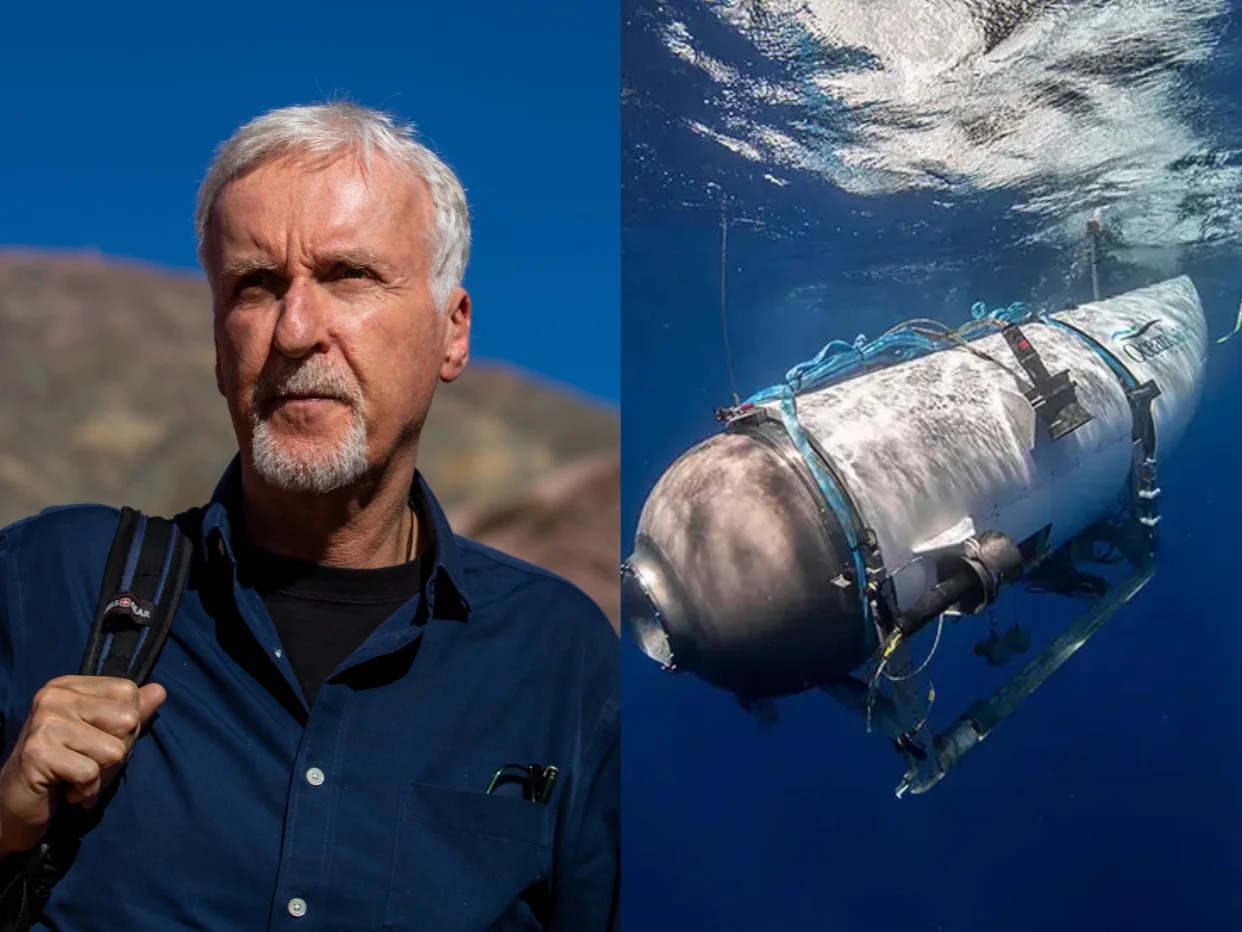
James Cameron says the OceanGate submersible rescue morphed into a 'crazy' operation when 'we all knew they were dead'
James Cameron has said the rescue operation for the OceanGate submersible victims became "crazy."
"We all knew they were dead," Cameron told "60 Minutes Australia" in an interview that aired on Sunday.
The Titanic expert added that the rescue then turned into a "beautiful media circus."
A year on from the OceanGate implosion, the filmmaker and Titanic expert James Cameron has said the rescue operation was "crazy" — because people involved in the rescue already knew the victims were all dead.
In an interview with "60 Minutes Australia" released on Sunday, Cameron commented on the sprawling four-day rescue operation that followed the submersible's disappearance on June 18.
"We all knew they were dead. We'd already hoisted a glass, a toast to our fallen comrades, on Monday night," he said in the interview.
He added that he thought the Coast Guard followed a rescue procedure that was "unnecessarily torturous" for the families because the authorities had already been informed of an "implosion event" near the Titanic wreck site.
Cameron said he'd received news of the implosion from a naval source on Monday morning and had written it down on a stationary pad in his hotel.
"I literally wrote that on the pad the moment I heard from my naval source, a very reliable source, that they had heard an event and triangulated it to the site," Cameron said.
The note he showed to the interviewer read: "9:25 confirmed implosion."
But Cameron said the catastrophe made for a "beautiful media circus."
"It just transformed into this crazy thing," he added. "Everybody running around with their hair on fire, when we knew right where the sub was. Nobody could admit that they didn't have the means to go down and look. So they were running all over the surface, and the entire world waiting with bated breath."
The US Coast Guard and OceanGate announced on June 22 that debris found on the sea bed confirmed that the submersible had imploded and that the five men on board were dead.
The victims were the British billionaire Hamish Harding, the British-Pakistani multimillionaire Shahzada Dawood and his 19-year-old son Suleman, the former French navy diver Paul-Henri Nargeolet, and OceanGate CEO Stockton Rush.
The titanium and carbon-fiber submersible set off on June 18 to explore the wreckage of the RMS Titanic, nearly 13,000 feet underwater. It went off the radar less than two hours after the dive started.
Cameron, who has visited the Titanic wreck 33 times, has vocally criticized OceanGate, the company behind the ill-fated submersible.
He said that he'd warned company officials that the Titan vessel could lead to "catastrophic failure" and that it was "only a matter of time" before something would go wrong.
He also said the company lacked "rigor and discipline" and that new regulation was needed in deep-sea exploration.
Cameron's representative didn't immediately respond to a request for comment from Business Insider sent outside regular working hours.
James Cameron reveals devastating intelligence he received about doomed Titan submersible after disaster
Emma Guinness
Tue, June 11, 2024
James Cameron has slammed the ongoing investigation into the Titan submersible disaster almost a year after it claimed the lives of five people – as he revealed the tragic intelligence he received in the immediate aftermath of the disaster.
The acclaimed Titanic director, 69, who has made over 30 dives to the wreck in manned submersibles, offered to be an expert witness in the investigation. However, he claims he has never been asked for his opinion almost a year after the 15 June disaster.
Cameron claims that a “very reliable” source told him that an implosion was detected close to the wreck site while the investigation was still continuing under the assumption that the men trapped in the Titan could still be alive.
“I literally wrote that on the [notepad] the moment I heard from my naval source, a very reliable source, that they had heard an event and triangulated it to the site [of the sub],” Cameron said.
While Cameron does not believe that the US Coast Guard deliberately lied to the families of the men who died, he does believe they withheld information and “went by a procedure that was torturous for the family.”
His revelation comes after the US Coast Guard confirmed to The Independent that the investigation was still in its fact-finding phase.
Five people, including OceanGate CEO Stockton Rush and Cameron’s close friend and Titanic expert, Paul-Henri Nargeolet, lost their lives around two hours into the Titan submersible’s commercial dive to the Titanic wreck site.
The disaster was the result of a “catastrophic implosion” that has been speculated to be the result of the submersible’s controversial carbon fibre hull.
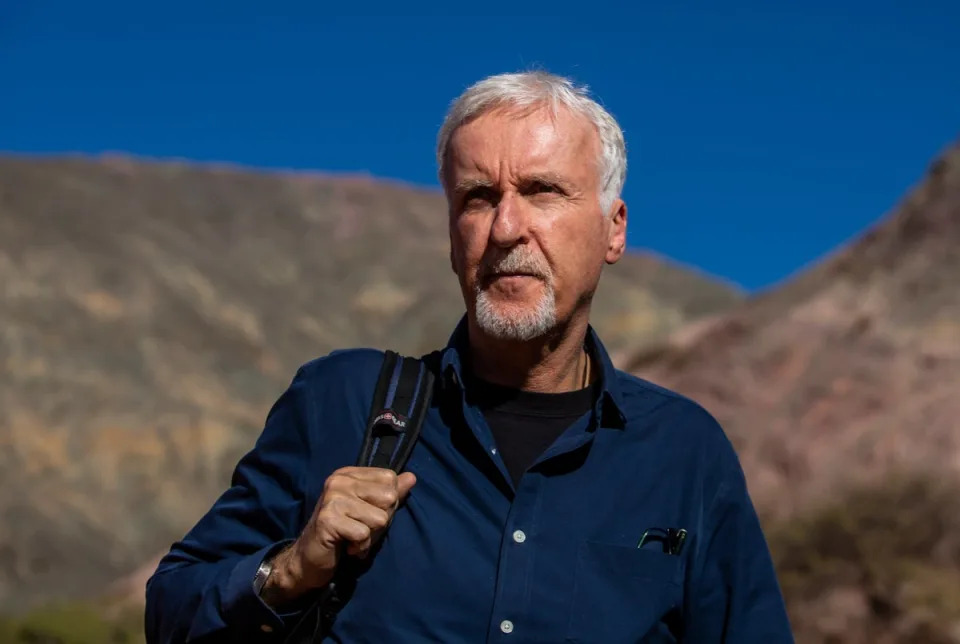
James Cameron has visited the Titanic wreck multiple times and offered to be a witness in the Titan submersible disaster investigation. but he claims he has never been called upon. (Copyright 2023 The Associated Press. All rights reserved)
Questions about the submersible’s safety had already been raised before last year’s disaster and now experts, including Cameron, are questioning how the company behind the Titan, OceanGate, was even allowed to offer commercial trips to the wreck in the “experimental” vehicle.
“I’ve volunteered to the investigative committee at the Coast Guard,” Cameron told 60 Minutes Australia on Sunday (8 June).
“They should be inviting me but they’re not. Why listen to a scientist?’
Cameron continued: “Frankly, I think they’ve kind of got egg on their face and they don’t want outside opinions.
“‘That’s just my interpretation.”
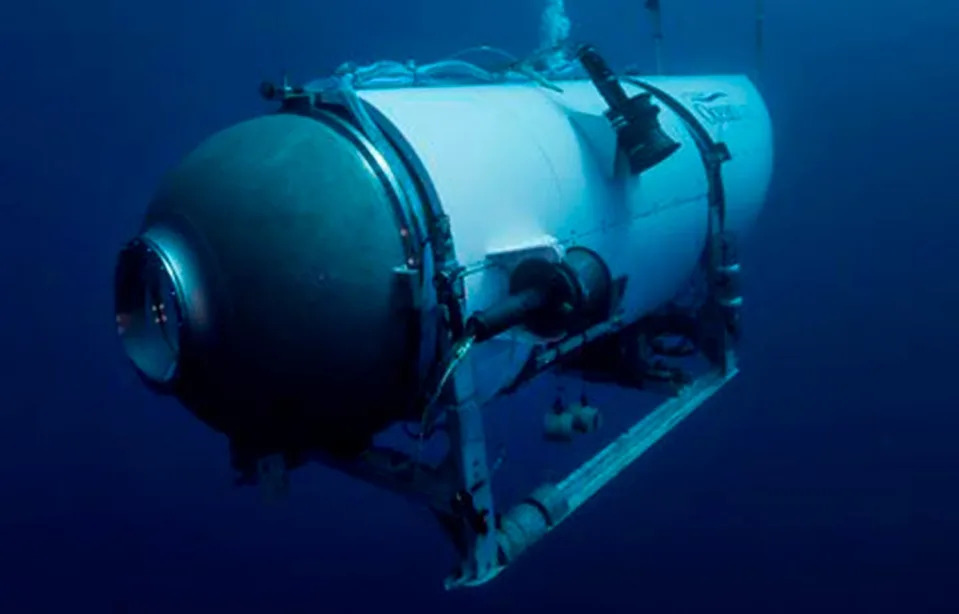
The Titanic tourist sub had a carbon fibre hull, which has been speculated to have played a role in its catastrophic implosion last year (OceanGate Expeditions)
OceanGate notably had its passengers sign a waiver that mentioned the submersible’s experimental status and had them repeatedly accept the risk of death.
The company claimed before the disaster that paying citizen explorers were the key to better understanding the world’s oceans and charged $250,000 for a visit to the Titanic.
“These guys broke the rules,” Cameron told 60 Minutes.
“It’s that simple. They should not have been legally allowed to carry passengers.”
The disappearance of the submersible made international news, prompting an extensive search and rescue operation.
At the time, it was believed that the five passengers – Stockton Rush, 61, Paul-Henri Nargeolet, 77, billionaire and explorer Hamish Harding, 58, Pakistani businessman Shahzada Dawood, 48, and his 19-year-old son, Sulaiman – could still alive on the submersible, but were at risk of dying when the sub’s limited emergency oxygen supply eventually ran out.
Hope was further fuelled by reports of banging from beneath the ocean, which were wrongfully interpreted as the passengers attempting to make themselves known ahead of a rescue.
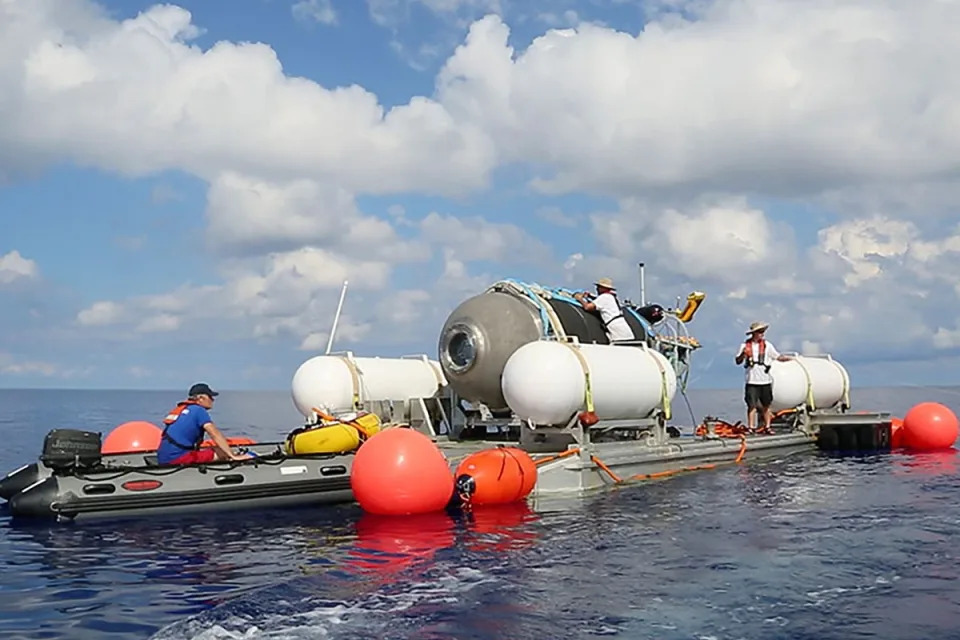
The search for the submersible was called off when its remains were discovered close to the Titanic wreck site (PA Media)
But Cameron has slammed the handling of the investigation and how these bangs were interpreted.
“I mean my jaw literally dropped open farther and farther each day that they never cautioned everybody,” he said.
“Everybody running around with their hair on fire when we knew right where the sub was.
“But nobody could admit that they didn’t have the means to go down and look.
“So they were running all over the surface and the entire world waiting with bated breath talking about 96 hours of oxygen.
“We all knew they were dead.
“We’d already hoisted a glass, you know, a toast to our fallen comrades on Monday night.
“They’re hearing… something tapping against a hull over the sound of 11 ships operating in the immediate vicinity, moving giant pieces of deck equipment around?
“That’s like hearing a sparrow fart over the cacophony of an airport.”
The search for the missing submersible was finally called off shortly after its oxygen supply would have run out when its remains were discovered on the ocean floor, close to the bow of the Titanic.
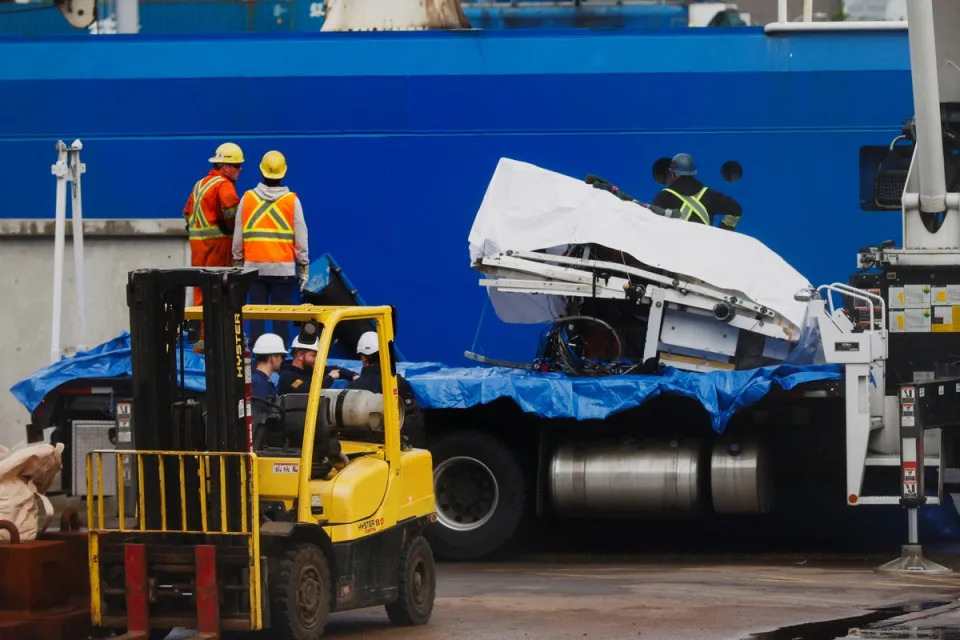
The Titan wreck was salvaged as part of the ongoing investigation into last June’s disaster (Reuters)
Captain Jamie Frederick of the US Coast Guard, however, has defended the handling of the search and said it had to continue until definitive information had been discovered.
He also said that the information about the implosion that Cameron had access to was classified at the time.
“In the business of search and rescue, absent definitive information, we have both a moral and statutory responsibility, frankly, to continue to search,” Frederick said.
“If you don’t have hope and you’re conducting a search and rescue case, you’re in the wrong business.”
OceanGate suspended all of its operations in the wake of the disaster.
A spokesperson for the Coast Guard told The Independent: “The Titan Marine Board of Investigation (MBI) remains in the fact-finding phase of the investigation and is collecting all relevant evidence and information.
“A projected completion date is not available.
“The latter part of the fact-finding phase will include a public hearing, and the MBI will provide at least 60 days’ notice ahead of the public hearing.”
The US Coast Guard told The Independent: “The Titan Marine Board of Investigation (MBI) became aware of Mr Cameron’s willingness to assist the investigation after viewing the Australian 60 Minutes segment. The MBI welcomes his participation, and the team will be reaching out to him.”
No comments:
Post a Comment